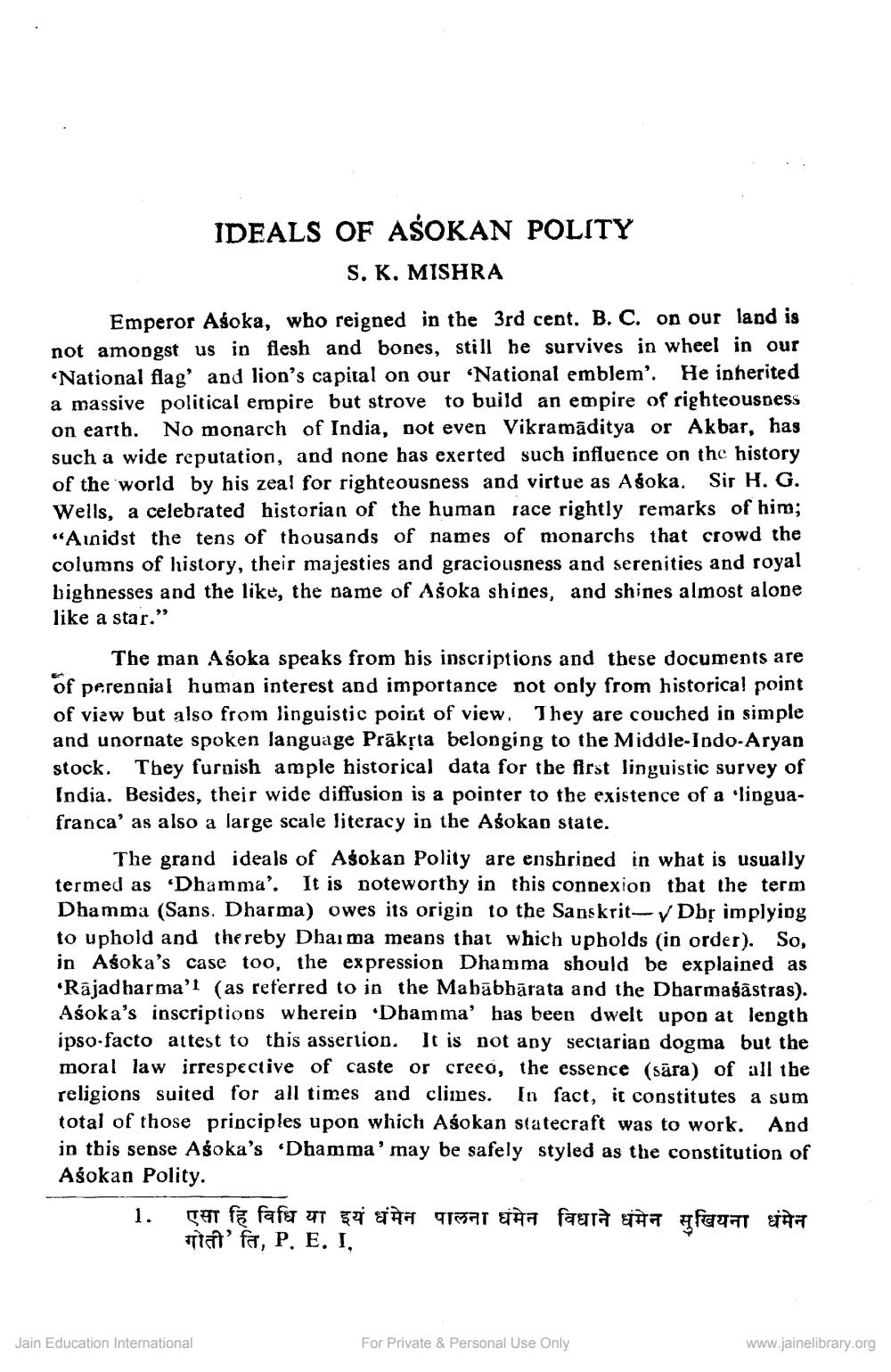________________
IDEALS OF ASOKAN POLITY
S. K. MISHRA
Emperor Asoka, who reigned in the 3rd cent. B.C. on our land is not amongst us in flesh and bones, still he survives in wheel in our National flag' and lion's capital on our "National emblem'. He inherited a massive political ernpire but strove to build an empire of righteousness on earth. No monarch of India, not even Vikramaditya or Akbar, has such a wide reputation, and none has exerted such influence on the history of the world by his zeal for righteousness and virtue as Ašoka. Sir H. G. Wells, a celebrated historian of the human race rightly remarks of him; "Aunidst the tens of thousands of names of monarchs that crowd the columns of history, their majesties and graciousness and serenities and royal bighnesses and the like, the name of Asoka shines, and shines almost alone like a star."
The man Asoka speaks from his inscriptions and these documents are of perennial human interest and importance not only from historical point of view but also from linguistic point of view. They are couched in simple and unornate spoken language Prākṣta belonging to the Middle-Indo-Aryan stock. They furnish ample historical data for the first linguistic survey of India. Besides, their wide diffusion is a pointer to the existence of a "linguafranca' as also a large scale literacy in the Asokan state.
The grand ideals of Asokan Polity are enshrined in what is usually termed as Dhamma'. It is noteworthy in this connexion that the term Dhamma (Sans. Dharma) owes its origin to the Sanskrit V Dbr implying to uphold and thereby Dharma means that which upholds (in order). So, in Asoka's case too, the expression Dhamma should be explained as Rajadharma'l (as referred to in the Mahābhārata and the Dharmaśāstras). Asoka's inscriptions wherein •Dhamma' has been dwelt upon at length ipso facto attest to this assertion. It is not any sectarian dogma but the moral law irrespective of caste or creed, the essence (sāra) of all the religions suited for all times and climes. In fact, it constitutes a sum total of those principles upon which Asokan statecraft was to work. And in this sense Asoka's Dhamma' may be safely styled as the constitution of Asokan Polity.
1. एसा हि विधि या इयं धंमेन पालना धंमेन विधाने धमेन सुखियना धमेन
tat' fa, P. E. I,
Jain Education International
For Private & Personal Use Only
www.jainelibrary.org




